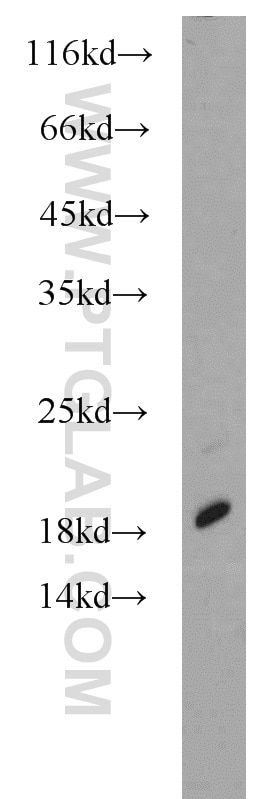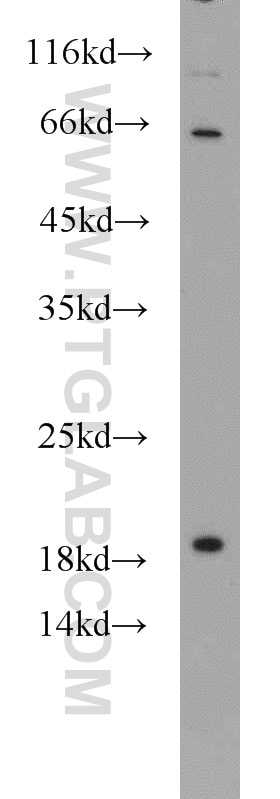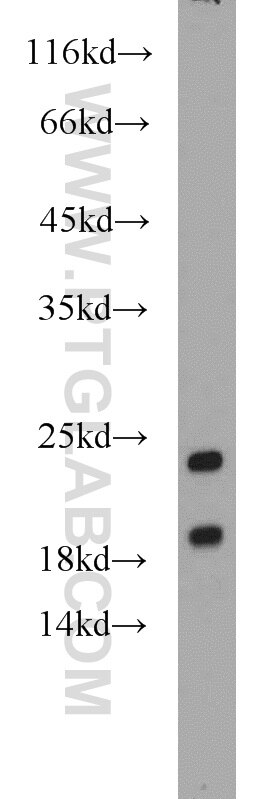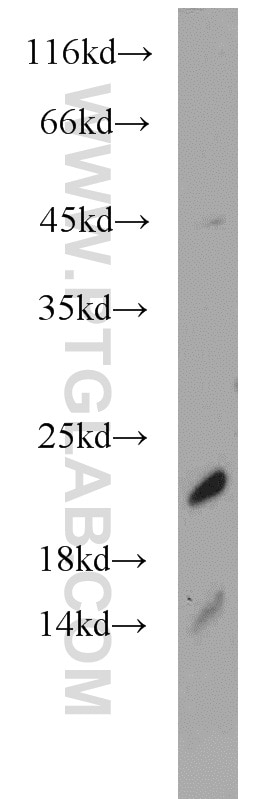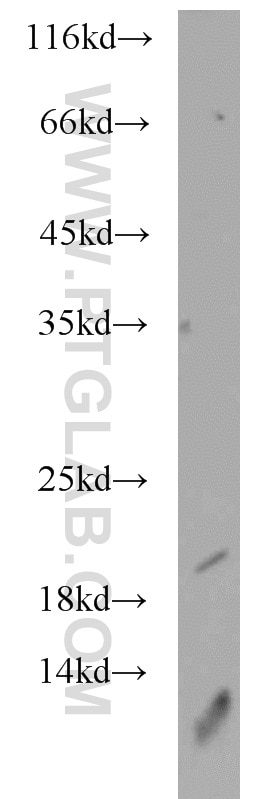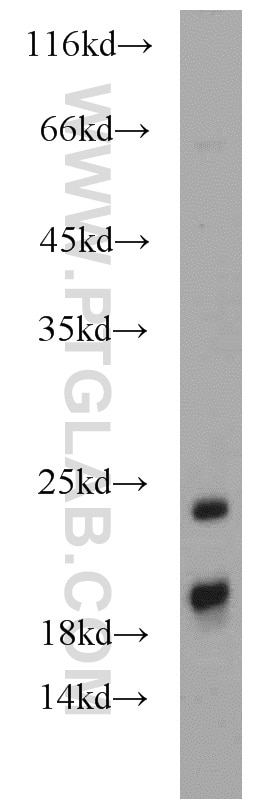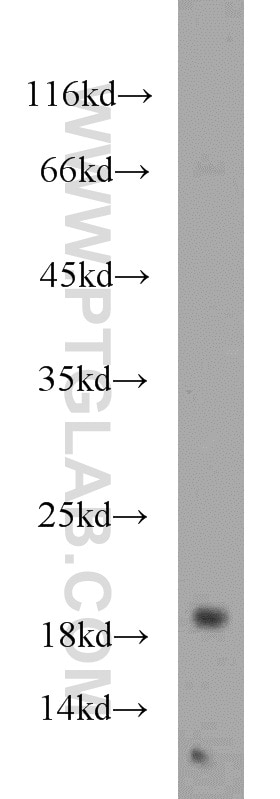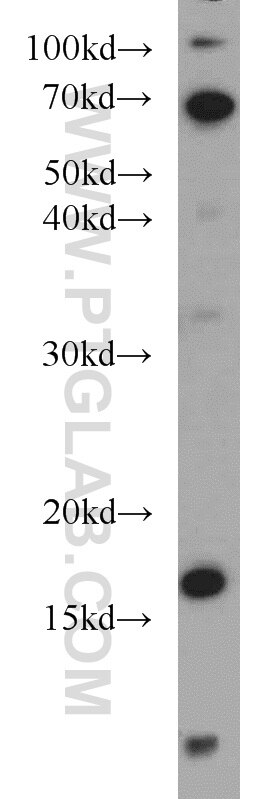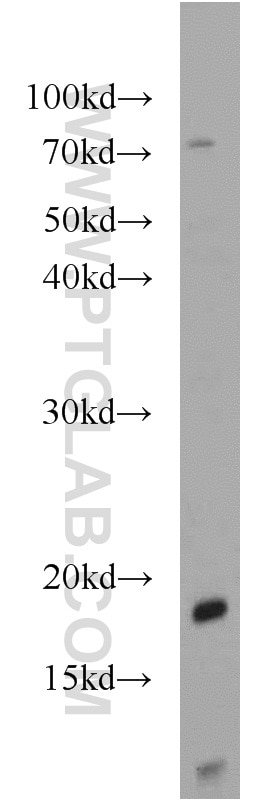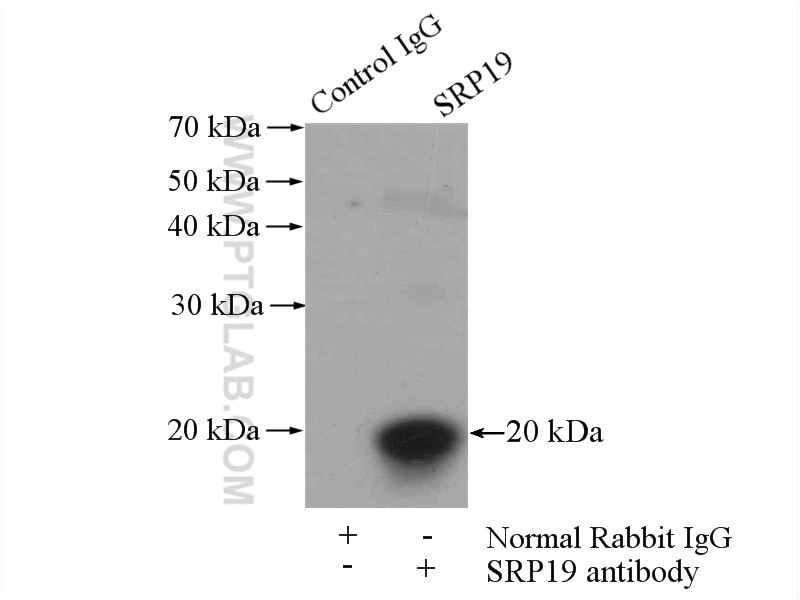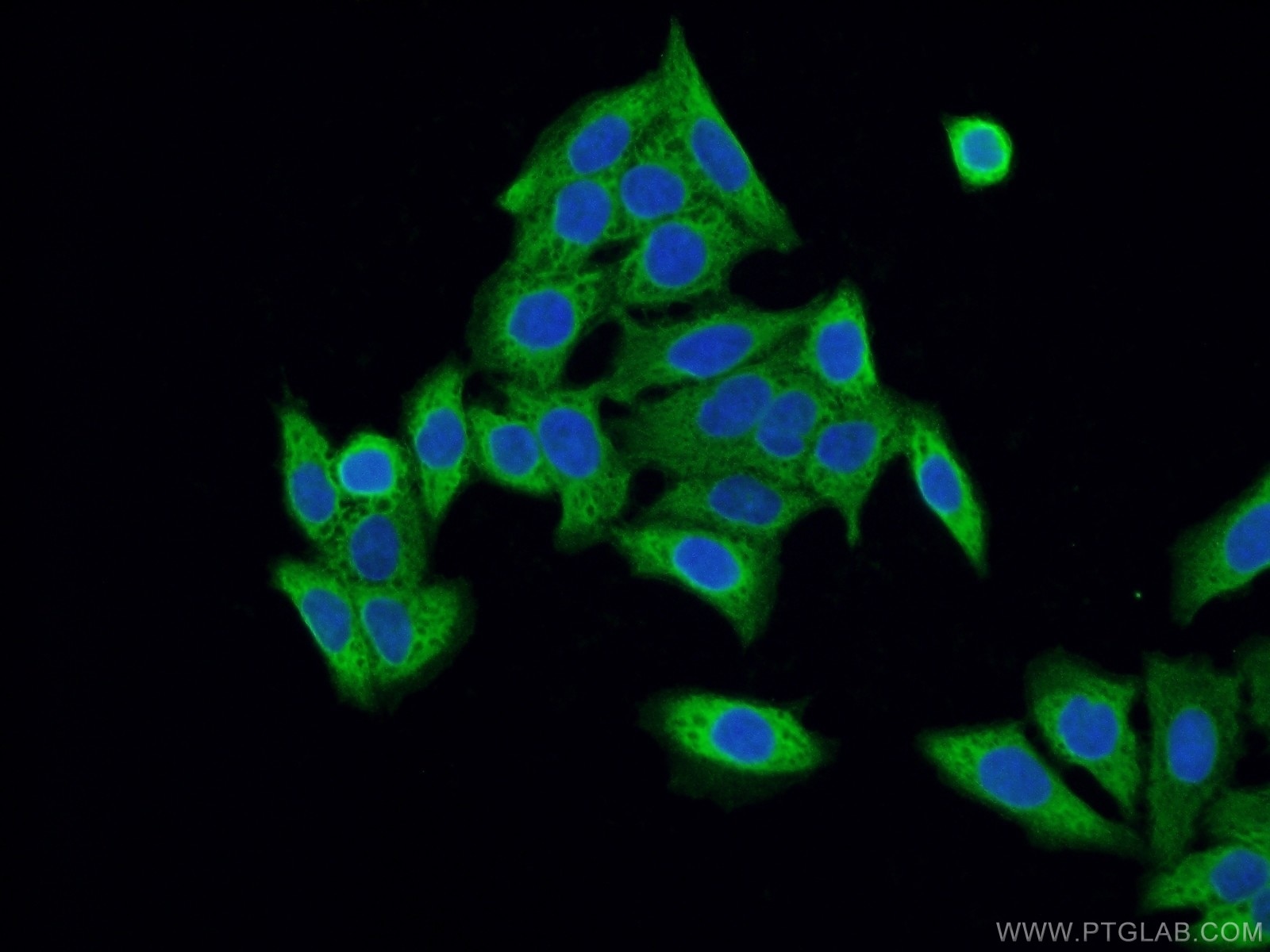SRP19 Polyklonaler Antikörper
SRP19 Polyklonal Antikörper für IF, IP, WB, ELISA
Wirt / Isotyp
Kaninchen / IgG
Getestete Reaktivität
human, Maus, Ratte
Anwendung
WB, IP, IF, ELISA
Konjugation
Unkonjugiert
Kat-Nr. : 16033-1-AP
Synonyme
Galerie der Validierungsdaten
Geprüfte Anwendungen
| Erfolgreiche Detektion in WB | humanes Lebergewebe, A549-Zellen, HeLa-Zellen, K-562-Zellen, Maus-Eierstockgewebe, Mauslebergewebe, Mausnierengewebe, Raji-Zellen |
| Erfolgreiche IP | Mausnierengewebe |
| Erfolgreiche Detektion in IF | HeLa-Zellen |
Empfohlene Verdünnung
| Anwendung | Verdünnung |
|---|---|
| Western Blot (WB) | WB : 1:500-1:2000 |
| Immunpräzipitation (IP) | IP : 0.5-4.0 ug for 1.0-3.0 mg of total protein lysate |
| Immunfluoreszenz (IF) | IF : 1:20-1:200 |
| It is recommended that this reagent should be titrated in each testing system to obtain optimal results. | |
| Sample-dependent, check data in validation data gallery | |
Veröffentlichte Anwendungen
| WB | See 4 publications below |
Produktinformation
16033-1-AP bindet in WB, IP, IF, ELISA SRP19 und zeigt Reaktivität mit human, Maus, Ratten
| Getestete Reaktivität | human, Maus, Ratte |
| In Publikationen genannte Reaktivität | human |
| Wirt / Isotyp | Kaninchen / IgG |
| Klonalität | Polyklonal |
| Typ | Antikörper |
| Immunogen | SRP19 fusion protein Ag8903 |
| Vollständiger Name | signal recognition particle 19kDa |
| Berechnetes Molekulargewicht | 144 aa, 16 kDa |
| Beobachtetes Molekulargewicht | 18-25 kDa |
| GenBank-Zugangsnummer | BC010947 |
| Gene symbol | SRP19 |
| Gene ID (NCBI) | 6728 |
| Konjugation | Unkonjugiert |
| Form | Liquid |
| Reinigungsmethode | Antigen-Affinitätsreinigung |
| Lagerungspuffer | PBS mit 0.02% Natriumazid und 50% Glycerin pH 7.3. |
| Lagerungsbedingungen | Bei -20°C lagern. Nach dem Versand ein Jahr lang stabil Aliquotieren ist bei -20oC Lagerung nicht notwendig. 20ul Größen enthalten 0,1% BSA. |
Hintergrundinformationen
The signal recognition particle (SRP) is one of the few functional small RNP particles. The SRP couples the synthesis of membrane and secretory proteins across or into the endoplasmic reticulum (ER) membrane in eukaryotes, as well as across the bacterial plasma membrane, and chloroplast thylakoid membranes. The mammalian SRP is composed of a 7S (or 7SL) RNA and six different proteins, SRP9, SRP14, SRP19, SRP54, SRP68 and SRP72. All of the components of SRP, including SRP RNA, participate directly in the overall protein targeting process. SRP19 binds directly to 7S RNA and mediates binding of the 54 kDa subunit of the SRP. SRP19 was shown to significantly enhance SRP54 attachment to helix 8 of 7SL RNA. Binding of SRP19 leads to restructuring of both helix 6 and 8, causing local changes at the SRP54-binding site. This antibody is a rabbit polyclonal antibody raised against full length SRP19 of human origin.
Protokolle
| Produktspezifische Protokolle | |
|---|---|
| WB protocol for SRP19 antibody 16033-1-AP | Protokoll herunterladen |
| IF protocol for SRP19 antibody 16033-1-AP | Protokoll herunterladen |
| IP protocol for SRP19 antibody 16033-1-AP | Protokoll herunterladen |
| Standard-Protokolle | |
|---|---|
| Klicken Sie hier, um unsere Standardprotokolle anzuzeigen |
Publikationen
| Species | Application | Title |
|---|---|---|
Nucleic Acids Res The pioneer round of translation ensures proper targeting of ER and mitochondrial proteins. | ||
Nucleic Acids Res SECIS-binding protein 2 interacts with the SMN complex and the methylosome for selenoprotein mRNP assembly and translation. | ||
PLoS One The CELF1 RNA-Binding Protein Regulates Decay of Signal Recognition Particle mRNAs and Limits Secretion in Mouse Myoblasts. | ||
Elife The unfolded protein response and endoplasmic reticulum protein targeting machineries converge on the stress sensor IRE1. |
